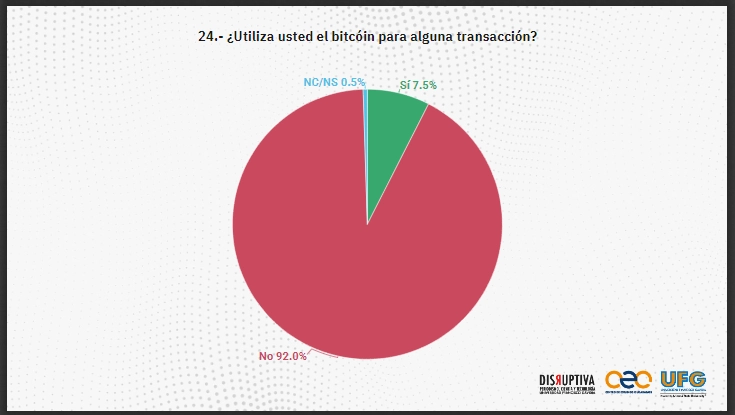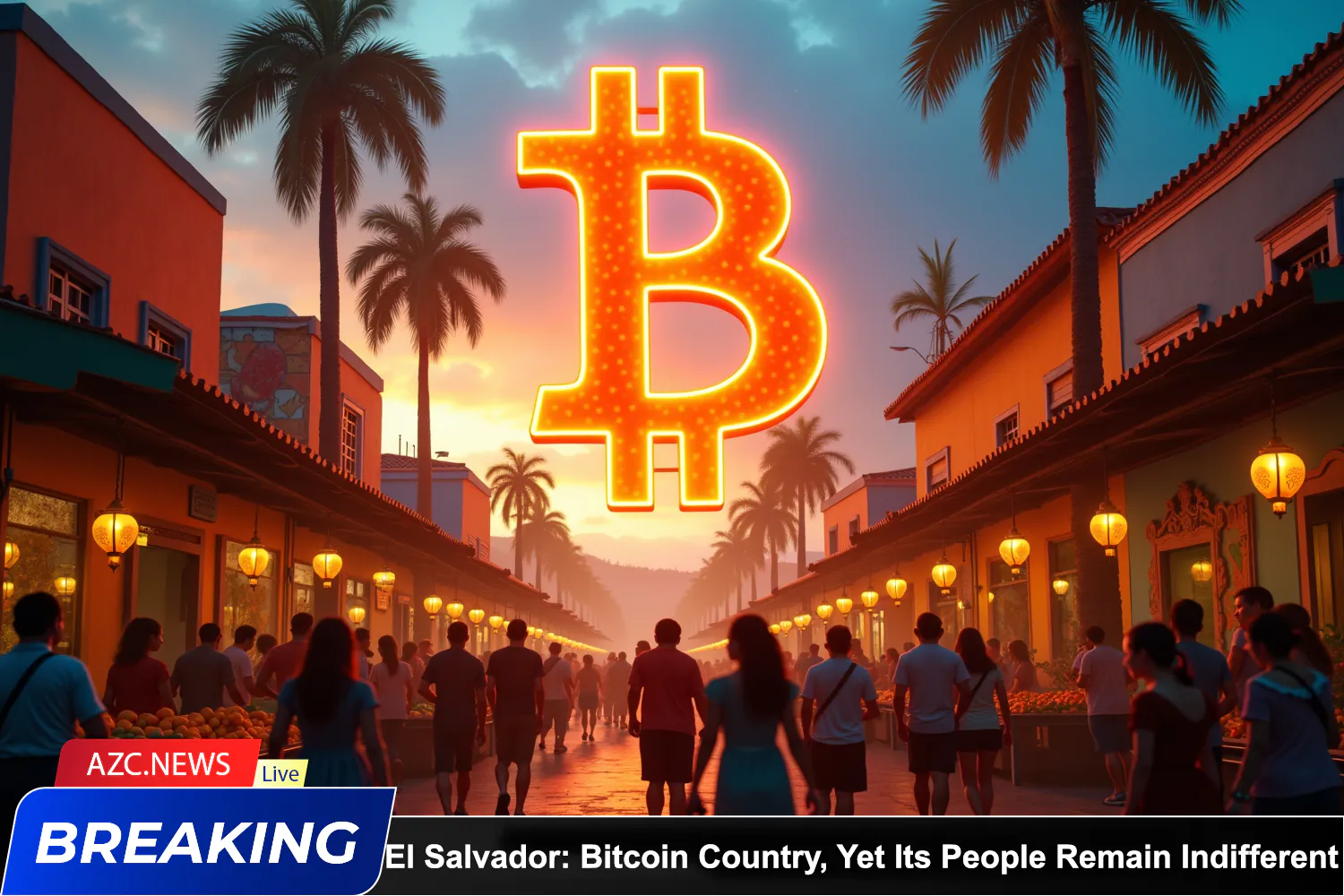According to the latest survey results from Francisco Gavidia University, released on October 10, 2024, the majority of El Salvador’s population is still not actively using Bitcoin in daily transactions, despite the cryptocurrency being recognized as legal tender in the Central American country.
Specifically, out of 1,224 adult participants in the survey:

- 92% had not conducted any transactions using Bitcoin
- 7.5% had used Bitcoin
- 0.5% did not respond
Compared to a 2023 survey by the Institute of Public Opinion at the Central American University, the percentage of people not using Bitcoin has slightly increased from 88% to 92%.
Notably, around 60% of respondents believe that El Salvador is heading in the right direction and expressed strong support for President Nayib Bukele. However, only 1.3% felt that Bitcoin should be a top priority for the country’s future. Most people indicated that the government should focus more on education and industrial development.
Since taking office in June 2019, President Bukele has led a tough crackdown on criminal gangs, resulting in the arrest of approximately 1% of the population. While these actions have garnered widespread support from the public, they have also faced significant criticism from human rights organizations over concerns about due process and the abuse of power.
In September 2021, under Bukele’s leadership, El Salvador became the first country to recognize Bitcoin as legal tender. He also introduced various policies to attract foreign investment, including the “Bitcoin Freedom” visa and plans for building a Bitcoin City.
Related: El Salvador Aims to Build a Bitcoin City
Entering his second term in June 2024, Bukele has pledged to position El Salvador as a global leader in several sectors, particularly the cryptocurrency industry.






